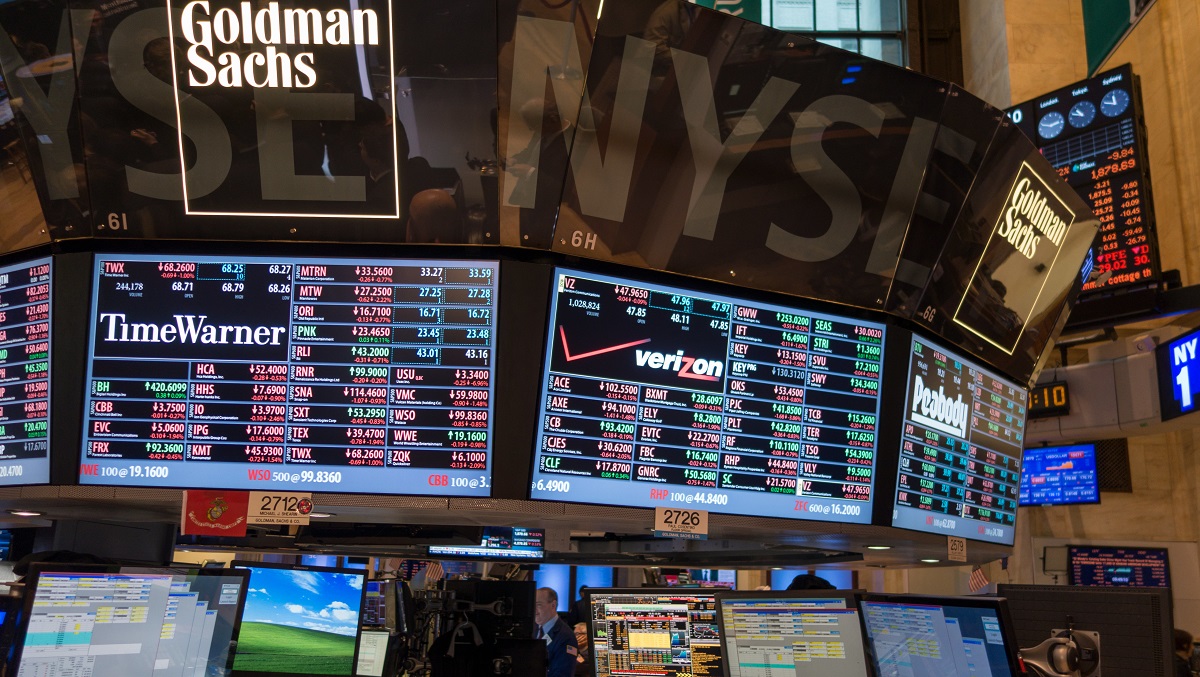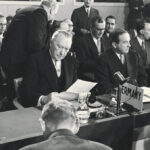
An exorbitant privilege. That is what French President Valéry Giscard d’Estaing called the U.S. dollar’s role as the global international reserve currency. That role brings many advantages but is it sustainable and worth any costs? What would it take for an alternative to emerge? The raising of the debt ceiling, the rise of China as a financial power and recent troubled economic times in the United States have many questioning the future of the U.S. dollar. A BETTER PEACE welcomes Rob Farley and Mark Duckenfield to discuss the realities of the power and place of the U.S. economy in the international market. They join podcast host Ron Granieri for a conversation about world finance. Their goal is to explain why debt is actually necessary, why the Chinese renminbi won’t likely become the new reserve currency and how much gold could fit in Bliss Hall here at the War College.
The U.S. dollar is one of the currencies and the primary currency that other countries hold, essentially as a hedge with respect to their own obligations, concerns about the international economy, and to maintain their own currencies. And so they will hold a portfolio of different currencies, kind of like they used to hold gold, and one of these, or the biggest one of those currencies, is the American dollar.
Podcast: Download
Rob Farley is a Senior Lecturer at the University of Kentucky and has been a Visiting Professor at the U.S. Army War College. He is the author of Grounded: The Case for Abolishing the United States Air Force and The Battleship Book and co-author of Patents for Power: Intellectual Property Law and the Diffusion of Military Technology and the new book Waging War with Gold: National Security and the Finance Domain Across the Ages.
Mark Duckenfield is the Dwight D. Eisenhower Chair of National Security and a Professor of International Economics in the Department of National Security and Strategy at the U.S. Army War College. Prior to joining the USAWC, he taught at the Air War College, the London School of Economics, and University College London. He holds an MA and Ph.D. in political science from Harvard University. He has held research appointments at the Max Planck Institute (Cologne) and Birkbeck College. He is the author of Business and the Euro and editor of The History of Financial Disasters, 1763-1995.
Ron Granieri is Professor of History and the Chair of the Department of National Security and Strategy at the U.S. Army War College and the Editor of A BETTER PEACE.
The views expressed in this presentation are those of the speakers and do not necessarily reflect those of the U.S. Army War College, U.S. Army, or Department of Defense.
Photo Description: Trading Floor at the New York Stock Exchange during the Zendesk IPO
Photo Credit: Scott Beale / Laughing Squid via flickr





Great discussion, put just the right amount of detail and clarity on a very misunderstood and politically manipulated subject without drowning us financial Neanderthal listeners.
Nice general background piece but hoping for something a little edgier with more emphasis on potential risks based on current political realities; example congress and funding the national debt and the unintended downstream consequences to foreign investment in US debt especially by sovereign funds and concurrent increase in cost of credit to both households and government at all levels.
An exceptionally long-running problem for the U.S./the West, this has been, and still appears to be, dealing effectively — both here at home and there abroad — with the “cultural backwardness” problems of various states and societies; “cultural backwardness” problems which tend to stand directly in the way of what Joseph Schumpeter, below, calls “normal economic intercourse.” (As we can see from the quoted items below, [a] while Schumpeter thought that “colonization” — by any “civilized” entity — was the best way to deal with these such “cultural backwardness” problems in earlier times, [b] Franklin Roosevelt, more recently, thought that something other than colonization was the way to go.)
Schumpeter:
“Where the cultural backwardness of a region makes normal economic intercourse dependent on colonization, it does not matter, assuming free trade, which of the ‘civilized’ nations undertakes the task of colonization.” (See the first paragraph of Joseph Schumpeter’s “State Imperialism and Capitalism.”)
Roosevelt:
“Imperialists don’t realize what they can do, what they can create! They’ve robbed this continent (Africa) of billions, and all because they are too short-sighted to understand that their billions were pennies, compared to the possibilities! Possibilities that must include a better life for the people who inhibit this land.” (See the beginning quotes at Chapter 5 of Niall Ferguson’s “Colossus: The Rise and Fall of the American Empire.”)
Question — Based on the Above:
Today, does the role of the U.S. dollar provide any significant benefit to the “civilized” world; this, in overcoming the “cultural backwardness” problems of various states and societies (to include our own) — “cultural backwardness” problems which today — much as yesterday — seem to stand directly in the way of (a) Schumpeter’s “normal economic intercourse” and (b) Roosevelt’s “better life for the people who inhibit this (these) lands?”
(If not, then might the currency of some other nation(s) [who exactly] do a better such job?)